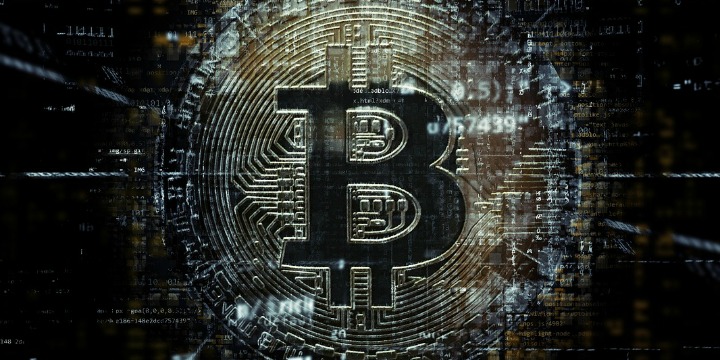Israeli Cybersecurity Giant Tracks Ransom Payments From New Cyber Attack To Iranian Nationals
 by Meir Orbach / CTech
by Meir Orbach / CTech

A symbol of the cryptocurrency Bitcoin. Photo: Pixabay.
CTech – Israeli cybersecurity giant Check Point Software Technologies revealed a new type of ransomware, dubbed Pay2Key, that has footprints leading to Iran. The attackers have already succeeded in harming several Israeli companies, including a leading law firm and a tech company in the gaming industry. Data on the attacked companies has already made its way to the dark web, with the attackers demanding 7-9 Bitcoin in ransom (approximately $110,000-$149,000). It is important to note that this is a new type of ransomware, different from the type that was recently used to attack Tower and Sapiens.
Check Point experts determined that the hack was carried out through employees’ remote connection system. “This is a fast and sophisticated type of ransomware that encrypts entire organizational networks within an hour, while threatening to leak large amounts of data belonging to the targeted organizations to the darknet if the ransom isn’t paid,” read a company statement.
Check Point said that in at least three instances the hackers indeed leaked the data of the attacked organizations. Most of the ransomware victims, at least a dozen, are Israeli companies of various sizes.
According to the investigation carried out at Check Point’s labs, four Israeli victims of the Pay2Key attacks have decided to pay the ransom, which enabled its experts to track the payment transfers between crypto wallets. In cooperation with WhiteStream, an Israeli blockchain intelligence company, the researchers were able to follow the Bitcoin money route and found that they all ended up in what appeared to be an Iranian cryptocurrency exchange named Excoino.
According to Check Point, Excoino is an Iranian company that provides secure cryptocurrency transactions services for Iranian citizens, with registration requiring users to have a valid Iranian phone number and ID. Based on the transfer route, the researchers were able to determine that the people behind the ransomware attacks were Iranian nationals.
 Palestinian Prime Minister Announces New Reform Package
Palestinian Prime Minister Announces New Reform Package France: Man Suspected of Abducting, Raping Jewish Woman ‘to Avenge Palestine’
France: Man Suspected of Abducting, Raping Jewish Woman ‘to Avenge Palestine’ Israel Intensifies Strikes Across Gaza, Orders New Evacuations in North
Israel Intensifies Strikes Across Gaza, Orders New Evacuations in North Iran Threatens to Annihilate Israel Should It Launch a Major Attack
Iran Threatens to Annihilate Israel Should It Launch a Major Attack ‘Completely Baseless’: Reports of Mass Graves at Gaza Hospitals are False, IDF Says
‘Completely Baseless’: Reports of Mass Graves at Gaza Hospitals are False, IDF Says Columbia University Shutters Campus as Jews Fear for Safety, Critics Call for President to Resign
Columbia University Shutters Campus as Jews Fear for Safety, Critics Call for President to Resign ‘Hamas, We Love You!’ A List of the Chants, Statements From Columbia University’s ‘Gaza Solidarity Encampment’
‘Hamas, We Love You!’ A List of the Chants, Statements From Columbia University’s ‘Gaza Solidarity Encampment’ ‘Useless Pigs’: Anti-Israel Demonstrations Rage at Yale University, Forcing Police Intervention
‘Useless Pigs’: Anti-Israel Demonstrations Rage at Yale University, Forcing Police Intervention Anti-Israel Protesters Interrupt Chelsea Handler Comedy Show Because of Her Support for Jewish State
Anti-Israel Protesters Interrupt Chelsea Handler Comedy Show Because of Her Support for Jewish State Israeli Hostage Families Make Passover Plea for Return of Missing Loved Ones
Israeli Hostage Families Make Passover Plea for Return of Missing Loved Ones



 Palestinian Prime Minister Announces New Reform Package
Palestinian Prime Minister Announces New Reform Package ‘Completely Baseless’: Reports of Mass Graves at Gaza Hospitals are False, IDF Says
‘Completely Baseless’: Reports of Mass Graves at Gaza Hospitals are False, IDF Says Iran Threatens to Annihilate Israel Should It Launch a Major Attack
Iran Threatens to Annihilate Israel Should It Launch a Major Attack Israel Intensifies Strikes Across Gaza, Orders New Evacuations in North
Israel Intensifies Strikes Across Gaza, Orders New Evacuations in North France: Man Suspected of Abducting, Raping Jewish Woman ‘to Avenge Palestine’
France: Man Suspected of Abducting, Raping Jewish Woman ‘to Avenge Palestine’